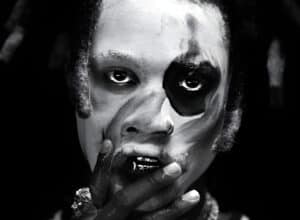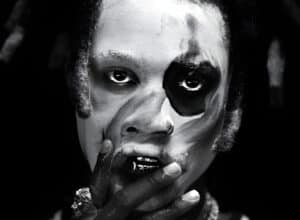Released: 2016 • Features: Joey Bada$$
“Zenith” by Denzel Curry featuring Joey Bada$$ is a deft exploration of the artists’ rise to the top of the hip-hop industry, emphasizing their continued struggle with external and internal demons, while cataloguing the societal expectations they face. It’s a stark commentary on modern American society as seen through the lens of hip-hop culture.
The repeated phrase “Catch me on the zenith” references the artists’ strive for excellence, while also illustrating the inherent isolation and psychological impact that often accompanies success. “The zenith” represents the pinnacle of achievement in their craft, hence “That’s the only time you’ll see ’em”. It indicates the almost phantom-like nature of their existence as public figures – visible, yet often out of reach and misunderstood.
The line “Televised, paralyzed, thoughts are paraplegic” is a nod to Gil Scott-Heron’s famous proclamation, “The revolution will not be televised”, suggesting that real societal change and personal growth go unseen by the public eye. It implies that their true persona is paralyzed on the TV screen – static, unchanging, and devoid of the complexity and dynamism found in their reality.
Iconic moments such as “Catch me on the zenith like I’m Hercules and Xena / Or Trick Daddy or Trina with the victims of Katrina” paints a vivid picture demonstrating their strength, resilience, and ability to overcome historical and contemporary adversities. The reference to Katrina victims underscores the societal issues that have plagued Black America, cementing their connection with their community while asserting their influential status comparative to Greek gods Hercules and Xena, or prominent hip-hop figures Trick Daddy and Trina.
The stanza “Catch me on a zenith, looking, down from my nimbus cloud / Just thinking aloud, “The sky’s the limit”, HOW NIGGA?” reflects on the paradoxical notion often sold to marginalized communities that the sky’s the limit, while they contend with systemic barriers. The phrase “nimbus cloud” adds an ethereal dimension to their perception, illustrating the dreamlike nature of their success.
The closing lines “Catch me on a zenith, catch me on a zenith / Catch me on a zenith, catch me on a zenith that’s the only time you’ll see ’em, nigga” are a defiant reminder of their incredible achievements. They’re telling you to witness them at their best, their peak, their ‘zenith’, but also making it apparent that there’s more to them beneath the surface.
In conclusion, “Zenith” by Denzel Curry and Joey Bada$$ is a complex critique of the duality of their existence as young, successful Black artists navigating the world of fame, while never losing sight of their roots and the societal hurdles they had to surmount to reach their zenith. It’s a song that demands repeated listens to really grasp the depth of their introspection and the broader commentary on Black success in America.








